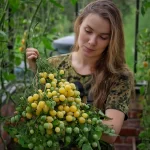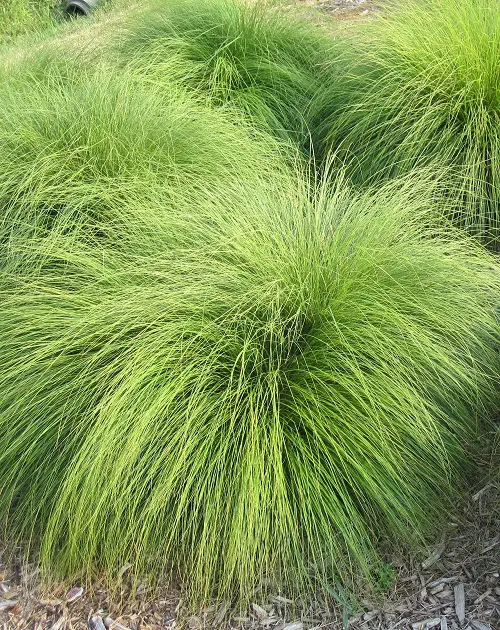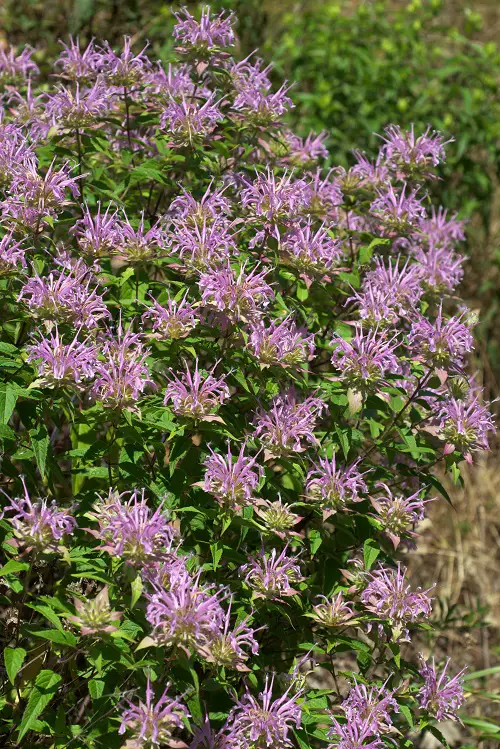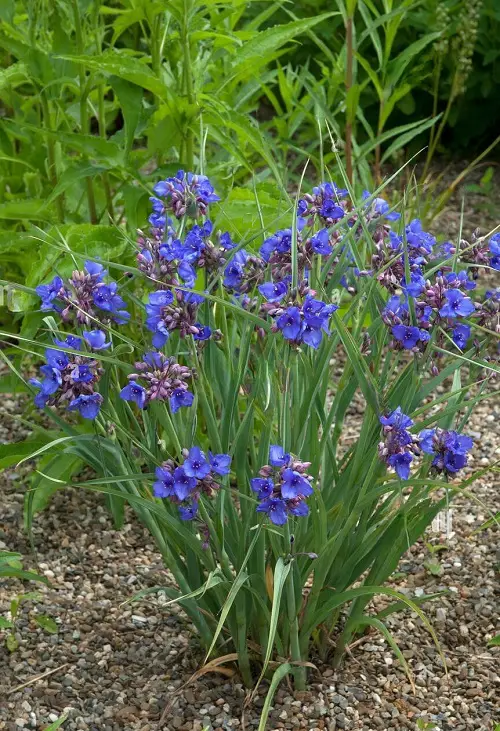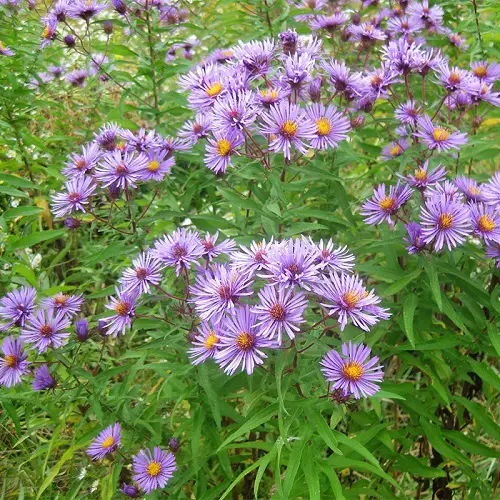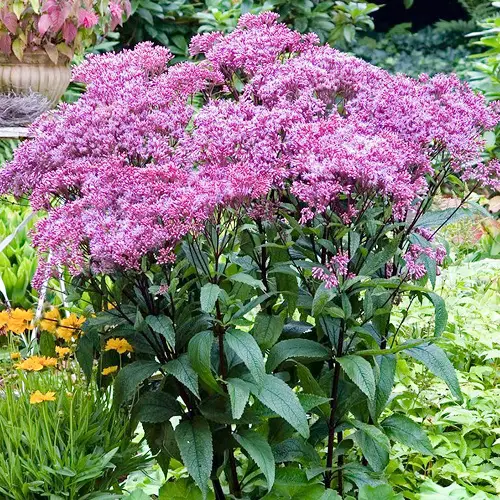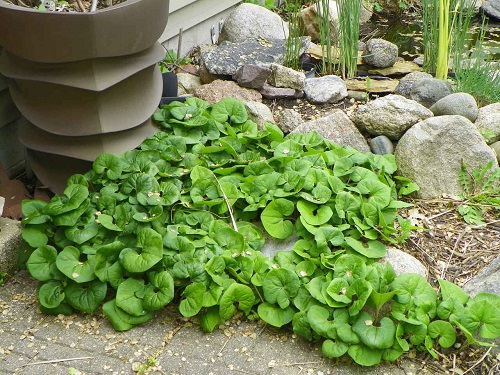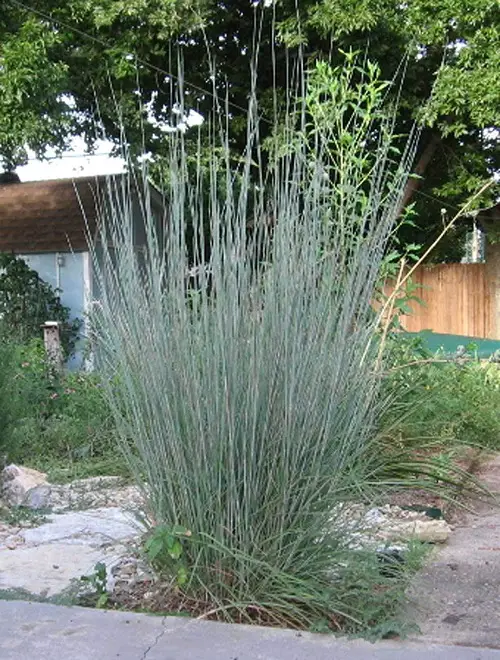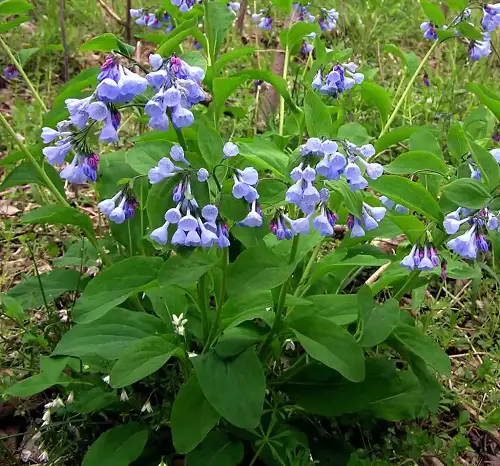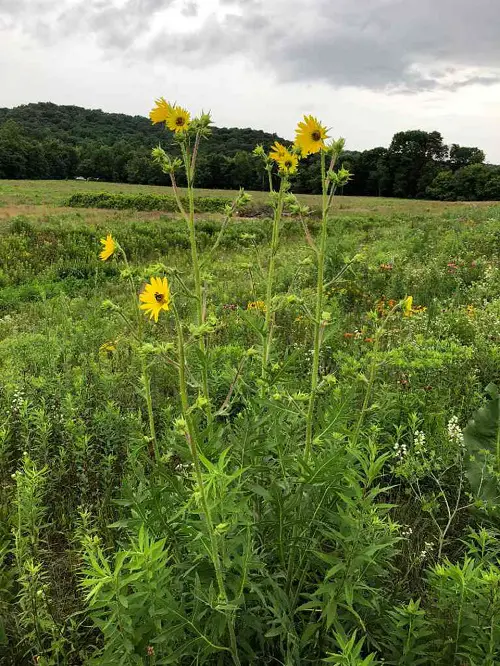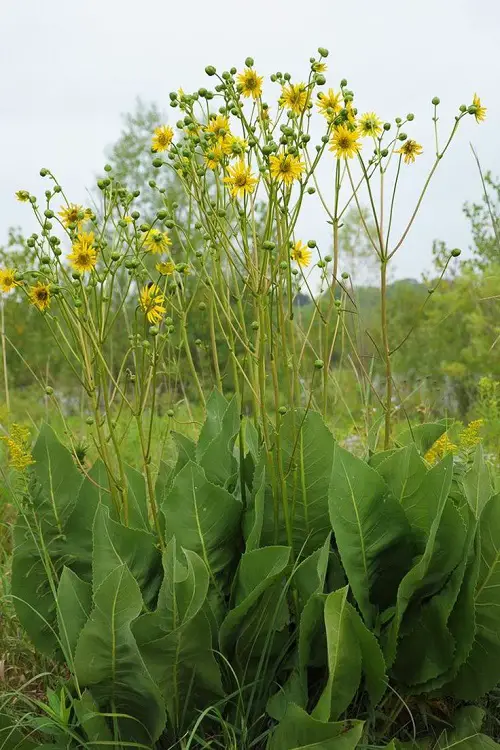Here’s a complete list of Illinois Native Plants that will help you explore the indigenous specimens of the state!
Illinois has a wonderful biodiversity. It is the habitat of many species of plants that harmoniously live and adapt to each other. This article will provide a Complete List Of Illinois Native Plants. Jump right in, and let’s start this journey!
USDA Hardiness Zones in Illinois
Illinois covers several USDA Hardiness Zones, ranging from Zone 5a in the northernmost parts of the state down to Zone 7a in the extreme southern part of Illinois. The majority of the state lies within Zones 5b to 6b. Here’s a brief overview:
- Zone 5a: This is the coldest zone in Illinois, with minimum temperatures reaching between -20 to -15 degrees Fahrenheit. It is found in the northernmost regions of the state.
- Zone 5b: This zone experiences minimum temperatures between -15 to -10 degrees Fahrenheit. It covers a large portion of northern Illinois.
- Zone 6a: Most of central Illinois falls within this zone, with minimum temperatures between -10 to -5 degrees Fahrenheit.
- Zone 6b: This zone includes parts of central and southern Illinois. It has minimum temperatures between -5 to 0 degrees Fahrenheit.
- Zone 7a: This is the warmest zone in Illinois and covers a very small area in the southernmost part of the state. Minimum temperatures range between 0 to 5 degrees Fahrenheit.
List of Illinois Native Plants
1. Big Bluestem
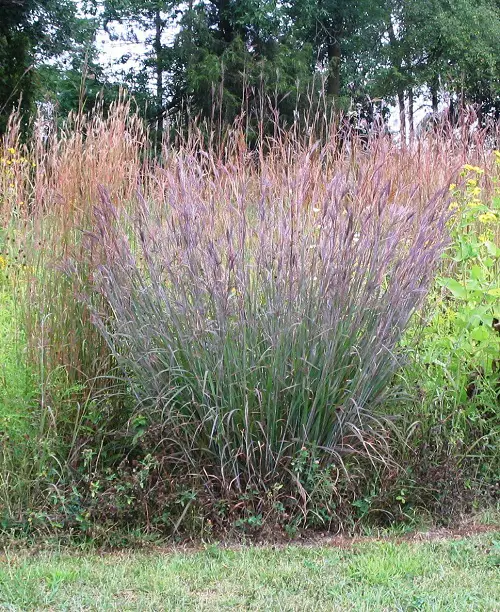
Botanical Name: Andropogon gerardii
First on the list of Illinois Native Plants, it is a tall and majestic prairie grass, known for its attractive blue-green foliage that waves gracefully in the wind.
2. Purple Coneflower
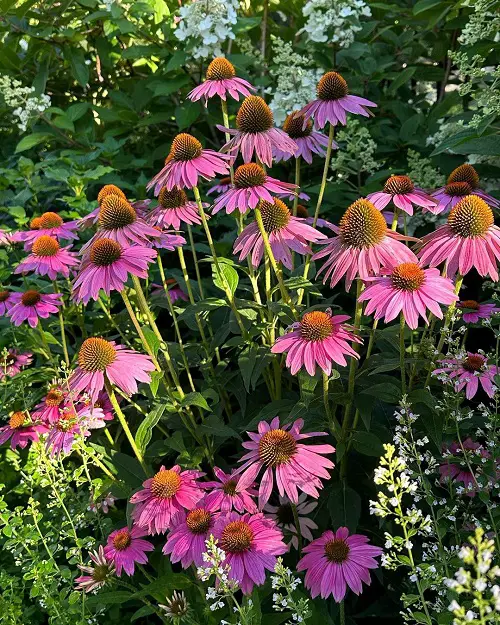
Botanical Name: Echinacea purpurea
Purple Coneflower boasts showy, purple-pink daisy-like flowers with prominent raised centers, attracting butterflies and bees to its nectar-rich blooms.
3. Black-eyed Susan

Botanical Name: Rudbeckia hirta
This classic wildflower displays bright yellow, daisy-like flowers with distinct black centers, making it a favorite among pollinators and a staple in prairie landscapes.
4. Prairie Dropseed
Botanical Name: Sporobolus heterolepis
These Illinois Native Plants form graceful airy clumps in prairies, adding texture and movement to the landscape with its fine-textured leaves.
5. Wild Bergamot
Botanical Name: Monarda fistulosa
Wild Bergamot features lovely lavender-pink flowers that are highly fragrant and popular among bees and butterflies. Its aromatic leaves are often used for herbal teas.
Discover 23 Types Of Lavander Flowers Here
6. Eastern Red Columbine
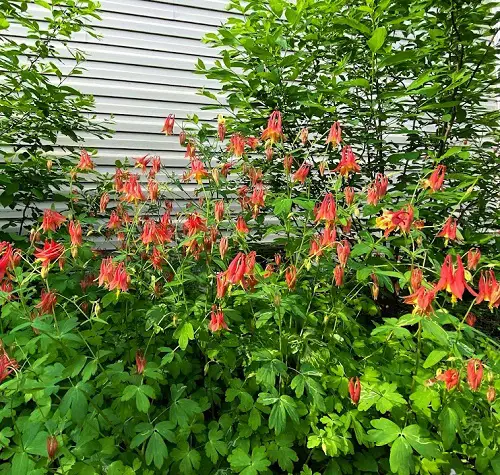
Botanical Name: Aquilegia canadensis
Eastern Red Columbine showcases unique red and yellow flowers with distinct spurs, making it a favorite of hummingbirds and an eye-catching addition to woodland gardens.
7. Ohio Spiderwort
Botanical Name: Tradescantia ohiensis
With its delicate purple-blue flowers that close in the afternoon, these Illinois Native Plants thrive in sunny prairies and adds a splash of color to natural landscapes.
8. New England Aster
Botanical Name: Symphyotrichum novae-angliae
New England Aster brightens late-season prairies with its vibrant purple flowers, providing a vital nectar source for bees and butterflies.
9. Yellow Coneflower
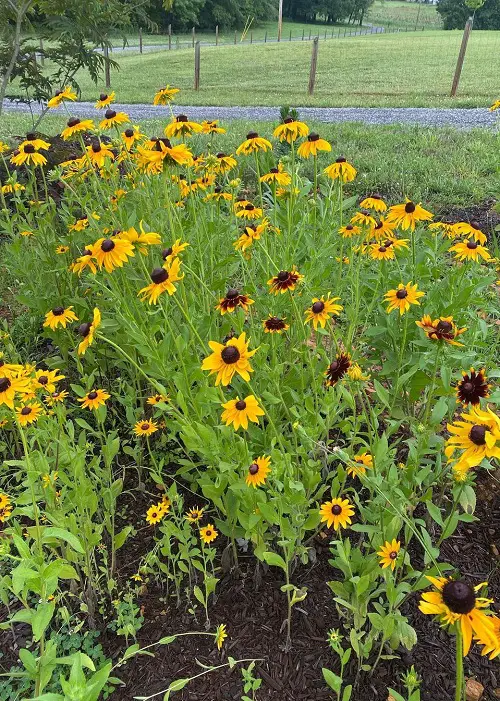
Botanical Name: Echinacea paradoxa
Yellow Coneflower‘s sunny disposition stems from its cheerful, drooping yellow petals that surround a dark cone, attracting a variety of pollinators to its blooms.
10. Butterfly Milkweed
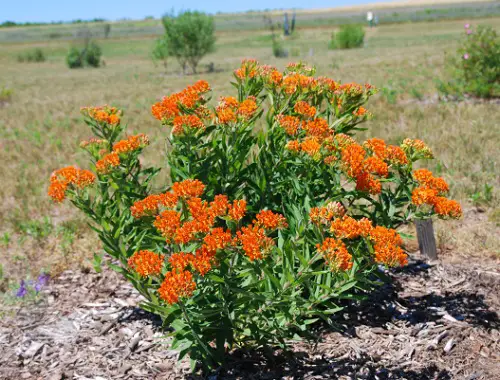
Botanical Name: Asclepias tuberosa
A must-have for monarch butterflies, these Illinois Native Plants boast bright orange flowers and is known for its resilience in drought-prone landscapes.
11. Leadplant
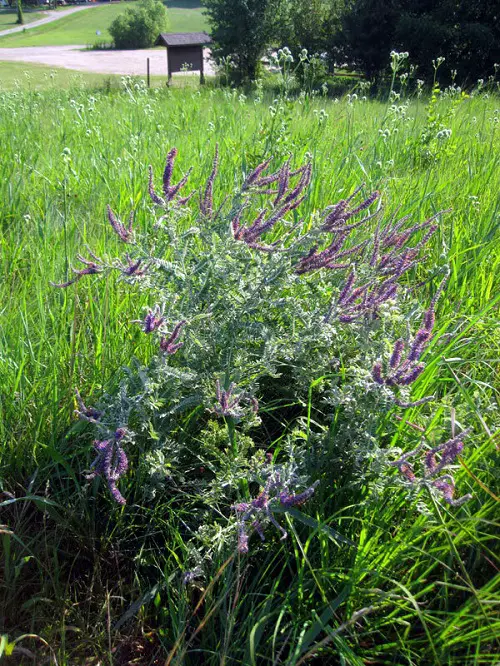
Botanical Name: Amorpha canescens
Leadplant captivates with its silvery, aromatic foliage and attractive spikes of blue-violet flowers, making it a valuable resource for native bees.
12. Wild Indigo
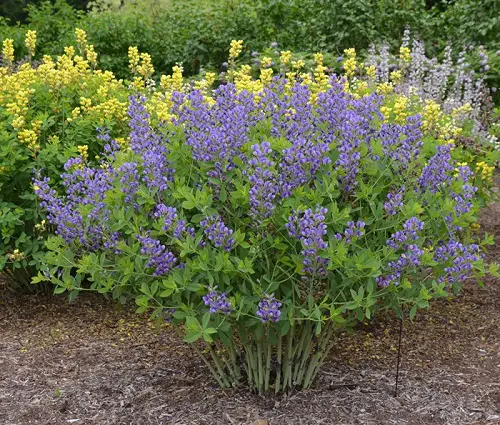
Botanical Name: Baptisia tinctoria
Wild Indigo’s tall spikes of blue to yellow pea-like flowers contribute to nitrogen fixation in the soil, benefiting the surrounding ecosystem.
13. Wild Quinine
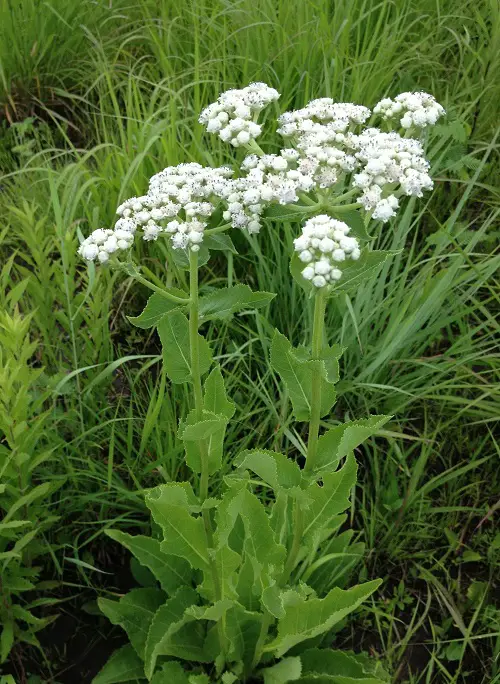
Botanical Name: Parthenium integrifolium
Clusters of white, button-like flowers characterize Wild Quinine, a plant with historical uses in traditional medicine and a preference for prairies.
14. Joe-Pye Weed
Botanical Name: Eutrochium purpureum
Joe-Pye Weed stands tall with large, pink-purple flower heads that act as a magnet for butterflies and other pollinators during the summer months.
15. Showy Goldenrod
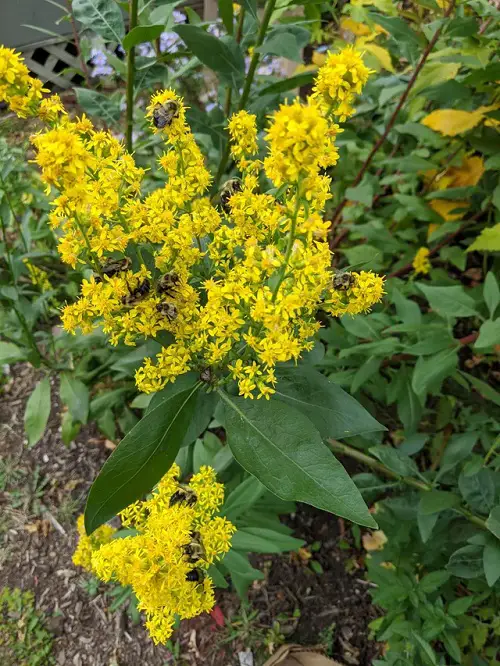
Botanical Name: Solidago speciosa
Showy Goldenrod adds a burst of bright yellow plumes to prairies during late summer, providing an important nectar source for bees and other insects.
16. Cardinal Flower
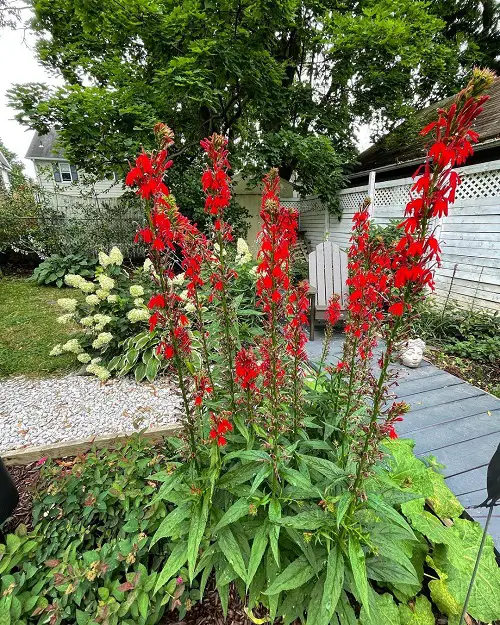
Botanical Name: Lobelia cardinalis
The striking red flowers of Cardinal Flower adorn tall spikes, and these wetland Illinois Native Plants are a favorite among hummingbirds seeking nectar.
17. Shooting Star

Botanical Name: Dodecatheon meadia
Graceful and enchanting, these Illinois Native Plants display pink or white flowers with reflexed petals, often found in woodland areas and adding charm to natural settings.
18. Wild Ginger
Botanical Name: Asarum canadense
With its heart-shaped leaves and low-growing habit, Wild Ginger thrives in the shade of woodland areas, offering a unique addition to native plant gardens.
Check out different types of ginger plant varieties here
19. Prairie Smoke
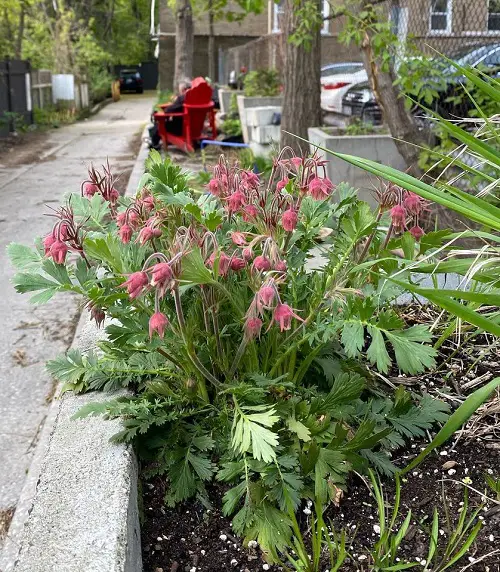
Botanical Name: Geum triflorum
Prairie Smoke’s unusual pink, feathery seed heads resemble smoke, creating a captivating sight and adding interest to prairies and meadows.
20. White Snakeroot
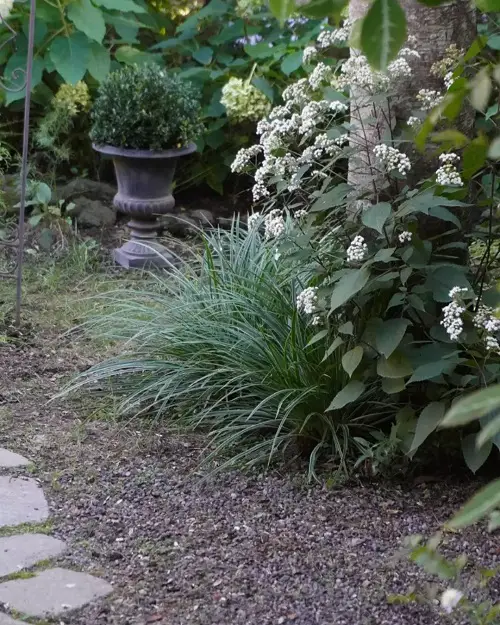
Botanical Name: Ageratina altissima
White Snakeroot features clusters of white, flat-topped flowers, and its presence along woodland edges attracts numerous pollinators.
21. Swamp Milkweed
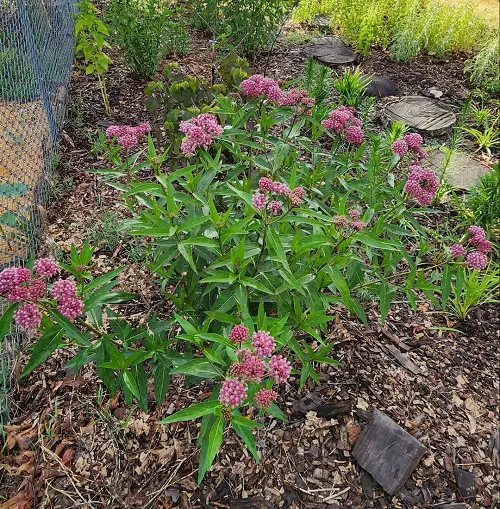
Botanical Name: Asclepias incarnata
Thriving in wetland gardens, these Illinois Native Plants display fragrant, pink flowers that serve as a vital source of nectar for butterflies and other pollinators.
Check Out These 17 Stunning Succulents With Pink Flowers Here
22. Little Bluestem
Botanical Name: Schizachyrium scoparium
A shorter prairie grass with bluish-green leaves, adding texture to natural landscapes. It doesn’t need a lot of care too!
23. Virginia Bluebell
Botanical Name: Mertensia virginica
A spring wildflower with bell-shaped blue-purple flowers, these these Illinois Native Plants thrive in woodland areas.
24. Wild Geranium
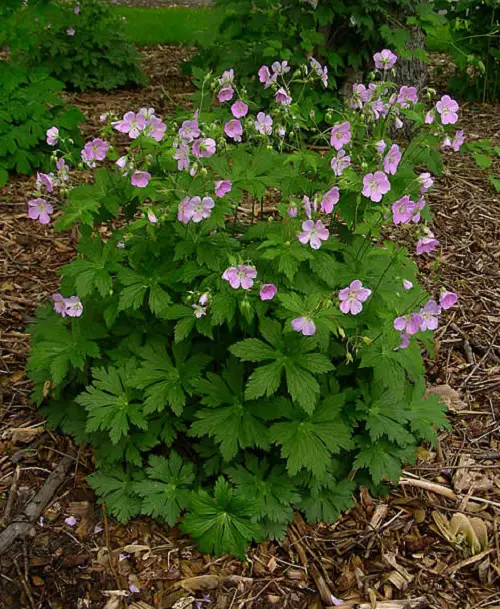
Botanical Name: Geranium maculatum
A woodland plant with pinkish-purple flowers and deeply lobed leaves. If you want a flowering specimen that blooms without much effort – this is it.
25. Compass Plant
Botanical Name: Silphium laciniatum
A prairie plant with deeply cut leaves that align themselves north to south. The blooms of these Illinois Native Plants resemble a lot to the sunflowers.
26. Prairie Dock
Botanical Name: Silphium terebinthinaceum
Tall and handsome are what these Illinois Native Plants are! They have large, rough leaves, providing habitat for insects.
Note: This list provides a glimpse of the rich and diverse native plant life in Illinois. Keep in mind that the availability of native plants may vary based on local ecosystems and conservation efforts. For more comprehensive information and resources on native plants in Illinois, consider consulting local botanical gardens, nature centers, or native plant societies.

